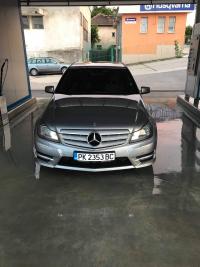Здравейте,
както споменах в една друга тема, имаме предложение за роудтрип в Гърция заедно с Кипърският и Гръцкият клуб
Това е тяхното предложение, предлагам да обсъдим датите като приоритет и да оставим домакините да ни разходят, където те преценят.
NORTH GREECE TOUR 2019
To be organised by Mercedes-Benz Clubs of Bulgaria, Cyprus and Greece.
We suggest to organise a tour in then north of Greece on the weekend of 22-25 March (Friday to Monday, or Saturday 23 to Sunday 24 of March).
Have a look at the route: https://goo.gl/maps/cLmdbzEFESq
Optional stop in Bulgaria:
Sandanski:
- Thermal Baths, Roman ruins.
- Hotels through www.booking.com
Greece:
- We can look for a hotel around Thessalononiki. www.bookgreece.com or www.booking.com
Places to visit:
1.Petralona Cave:
It was opened to the public in 1979. Covering an area of 10,400 square meters, the length of the corridors is about 2,000 meters and temperature throughout the year remains stable at 17 ° C (± 1 º C). It is located 800 meters from the settlement of Petralona, and is 50 km from Polygyros, capital of the Halkidiki prefecture and 50 km from Thessaloniki.
The cave is very important, as it presents anthropological and paleontological interest. In 1960, during the exploration works the cranium of a primitive man wqs found. He lived about 200,000 years ago, belongs to a transitional form, between Homo Erectus (the Standing Man) and Homo Sapiens (the Wise Man) and is the oldest testimony to the presence of humans in Greece.
The fossils, together with a number of tools made of stone or bones, used by the primitive inhabitant of the cave, are exhibited at the Paleontological Museum, located only a few steps away from the cave.
2. Vergina:
Vergina is best known as the site of ancient Aigai (Αἰγαί, Aigaí, Latinized: Aegae), the first capital of Macedon. It was there when in 336 BC Philip II was assassinated in the theatre and Alexander the Great was proclaimed king. The ancient site was discovered in 1976.and unearthed the burial sites of many kings of Macedon, including the tomb of Philip II, father of Alexander the Great, which, unlike so many other tombs, had not been disturbed or looted. It is also the site of an extensive royal palace. The archaeological museum of Vergina was built to house all the artifacts found at the site and is one of the most important museums in Greece.
Aigai has been awarded UNESCO World Heritage Site status as "an exceptional testimony to a significant development in European civilization, at the transition from classical city-state to the imperial structure of the Hellenistic and Roman periods".











 Виж ГАРАЖА
Виж ГАРАЖА

















